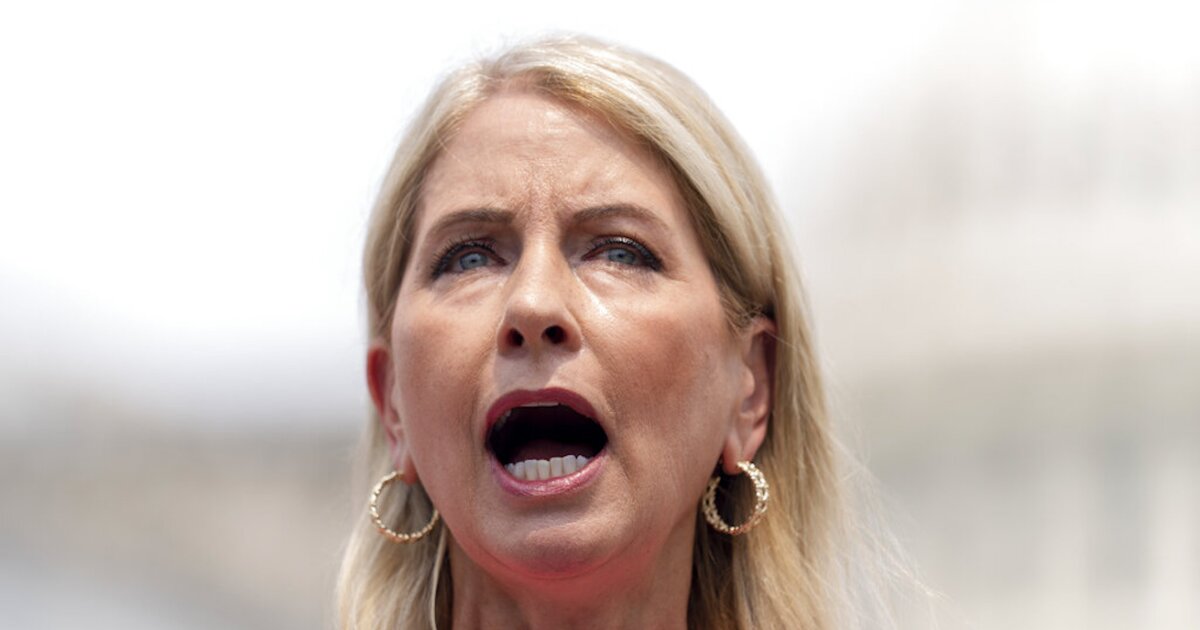

Illinois Republicans are under the thumb of insular, combative populists after state Sen. Darren Bailey and Rep. Mary Miller won primaries for governor and Congress, respectively, over appealing conservative pragmatists who would have improved their party’s midterm election prospects in this deep blue state.
Bailey was endorsed by former President Donald Trump. Miller, who captured the nomination in Illinois’s newly configured 15th Congressional District, was endorsed by the former president and the Club for Growth, an influential conservative advocacy group based in Washington. So neither qualifies as anti-establishment outsiders.
SIX 2022 RACES WHERE THE SUPREME COURT’S ABORTION DECISION COULD TIP THE OUTCOME
But Bailey’s victory over Aurora Mayor Richard Irvin, who is black, in the race for the gubernatorial nod and Miller’s defeat of incumbent Rep. Rodney Davis in a House primary forced by redistricting marked the coronation of the Trump-aligned, “MAGA” wing of the party atop the Illinois GOP.
Significantly, their ascension in Tuesday’s primaries marked a death knell for any influence wielded by traditional Republicans and the sort of broadly acceptable conservative candidate who would have offered the GOP opportunities to capitalize on a favorable 2022 political environment and make gains in decidedly Democratic Illinois.
“This is the biggest debacle I’ve ever seen,” Pat Brady, a former Illinois Republican Party chairman, told NBC News on the eve of the primary in an interview about the governor’s race. After the GOP gubernatorial primary was called for Bailey, who crushed the nomination with 57.5%, nonpartisan political handicappers immediately declared Illinois Gov. J.B. Pritzker, a Democrat, a shoo-in for reelection.
Miller easily dispatched Davis 57.2% to 42.8% in a new seat encompassing a vast region of central Illinois that presented neither with a distinct geographic advantage. Had Davis survived, his political reach might not have extended beyond the overwhelmingly Republican 17th Congressional District. But the message his win would have sent might have mattered in the fall.
Davis was no enemy of Trump, not by any stretch, having served as an “honorary state chairman” of his 2020 reelection campaign in Illinois.
But in Congress, he was a genial workhorse who focused on legislating and eschewed offensive political rhetoric. A Republican ticket led by Irvin and bolstered down the ballot by Davis might have been attractive to centrists, independents, and soft Democrats who oppose Trump and are suspicious of Republicans generally but dissatisfied with President Joe Biden and Democratic leadership in Congress.
Instead, Republicans are putting forward Bailey as the standard-bearer, a politician who supports Trump’s unsupported claims that the 2020 election was stolen, and Miller, a freshman congresswoman whose polarizing tenure on Capitol Hill has been pockmarked by pugilistic politics and provocative statements.
Just Saturday, she heralded the end of federal protections for abortion rights ushered in by the Supreme Court decision Dobbs v. Jackson Women’s Health Center a “historic victory for white life,” although a Miller spokesperson claimed she meant to say “a historic victory for right to life.” And last year, soon after being sworn in, Miller praised Nazi dictator Adolf Hitler during a rally with grassroots conservatives in Washington.
“If we win a few elections, we’re still going to be losing unless we win the hearts and minds of our children,” Miller said. “This is the battle. Hitler was right on one thing. He said, ‘Whoever has the youth has the future.’”
The Republicans have not won a presidential election in Illinois since 1988. But occasionally, centrist Republicans have been successful in statewide contests. In 2010, centrist Republican Mark Kirk, then a congressman representing a suburban Chicago swing district, won then-President Barack Obama’s old Senate seat. In 2014, centrist Republican Bruce Rauner was elected governor.
Both 2010 and 2014 were Republican wave years.
Avoiding a repeat of that this year, in another election shaping up as a GOP wave, could be what motivated Democrats to spend millions meddling in the Republican gubernatorial primary to boost Bailey over Irvin. Those funds succeeded in countering the approximately $50 million poured into the GOP gubernatorial primary by Republican megadonor Ken Griffin, a hedge fund manager who backed Irvin.
CLICK HERE TO READ MORE FROM THE WASHINGTON EXAMINER
The Democrats helped elevate Bailey despite professed concerns about Republicans who they claim pose a threat to democracy through their support for Trump’s unfounded stolen election claims. Meanwhile, about a week before the Illinois primary, as Irvin’s prospects were looking bleak, Griffin announced that he was moving his firm’s headquarters from Chicago to Miami.
It would appear that pragmatic conservative Republicans in Illinois might have just lost among their most prolific financiers.







